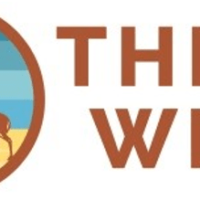Bend, Ore. – John Spriggs, a freestyle skier, backcountry skier, rock climber and fly fisherman, gets paid to live the outdoor life.
Spriggs, 28, spends most of the year chasing storms in a Nissan Titan with a pop-up camper and a snowmobile towed along behind. A former competitive skier, Spriggs has taken part in slopestyle, half-pipe and big air contests at the U.S. Freeskiing Open and the X Games.
The Bulletin reports that Spriggs has joined the growing ranks of professional athletes, mostly in snow sports, who have agreed to sponsorship and endorsement contracts with marijuana companies.
Spriggs added Oregrown Industries Inc., a Bend-based marijuana company, to a list of sponsors that includes Scott, a ski-goggle retailer, Mo Pros, a maker of snowmobile racks, and Montucky Cold Snacks, a Bozeman, Montana, brewery.
“I felt is was a perfect fit for me, to be part of something I really believe in,” Spriggs said Feb. 7 at the Oregrown retail shop on NW Wall Street. “They can really help me out, and through what I do, the lifestyle I live, where I’m fly fishing all summer and rock climbing at Smith Rock and doing a lot of different things, I can help push that lifestyle connection with cannabis.”
Endorsement contracts with professional athletes pays off in terms of increased sales, according to a June 2012 study co-authored by Anita Elberse, a professor at Harvard Business School. But marketing cannabis through celebrity and pro athlete endorsements is a relatively new and unstudied concept.
Chad Zeitner, co-founder of Montucky Cold Snacks, said the celebrity effect is real and benefits the 5-year-old company.
“It’s hard to calculate that, but we see it and it adds that (brand) loyalty,” he said Friday. “When they hear from somebody they know and respect, as opposed to a Facebook ad, it’s a whole different ballgame.”
Athletic sponsorships and endorsements promote the image that businesses want to cultivate. Marijuana and athletic activity may seem like contradictory concepts but Spriggs and others say cannabis consumption is part of snow-sports culture, and openly endorsing weed resonates with their intended audience, and means staying true to that culture. It’s also a business calculation.
“Any time a company is going to invest promotional resources into sponsorship and endorsements, as opposed to advertising, for example, they’ll want to align themselves with celebrities or events that align with their brand values,” said Aimee Huff, assistant professor of marketing at Oregon State University.
Marijuana companies capitalize on the athletic image, in part, to counter the picture of a stereotypical stoner sunk into a couch in a dark basement, playing video games, she said. Cannabis businesses, she said, are trying hard to associate instead with activity, productivity and achievement.
“By sponsoring and endorsing that obvious talent, and by aligning with sports and the outdoors, it repositions the brand or product with sports and being active, and making a positive contribution.”
For marijuana companies, brand values translate into a lifestyle, said Gary Bracelin, a partner in Tokyo Starfish, a Bend marijuana retailer, and co-founder of Bend Outdoor Worx, an industry accelerator for outdoor-product companies. Tokyo Starfish sponsors a roster of 10 professional skiers, snowboarders, surfers, filmmakers and mountain bikers, including Jake Price, Alex Lopez, Carson Storch and Jamie Lynn.
“First of all, it’s not really a marketing plan for us,” Bracelin said. “We all come from the snowboard industry, so this is just who we are. This is what we do. This is the lifestyle we lead.”
At Tokyo Starfish, whose founders include former professional snowboarder Jason McAlister, athletes who ride for the brand are friends whose career paths the business is supporting, as much as it is an advertising method, Bracelin said.
For Spriggs, sponsorship means Oregrown provides him with apparel, sports gear and cannabis, while he’s in the state, said Aviv Hadar, co-founder of the company. In the future, Spriggs may turn up at events sponsored by Oregrown, such as outdoor concerts, or take part in consumer ski-alongs at Mt. Bachelor.
“But it’s also a way of life, man,” Hadar said. “He gets paid to camp and hike and be outside.”
Despite being banned by sanctioning bodies, marijuana use is a common part of snow-sports culture, said Bracelin and others. Spriggs — who at 6-foot-5 is tall for a skier, his shoulder-length dreadlocks tucked into an Oregrown cap with its bill turned backwards — said he smoked cannabis even during his competitive days, which are now five years behind him. He routinely indulges today while skiing, climbing or fishing and selects various strains throughout the day for their effects, whether enhancing an outdoor experience or alleviating muscle aches.
“I’ll definitely smoke while doing all those things, before, during and after,” he said. “And now, with it being so open and people learning what different types of cannabis can affect you during the day, I can really plan out what I’m doing that day.”
The U.S. Ski and Snowboard Association, which sponsors the U.S. Ski Team and governs U.S. Olympic skiing and snowboarding, has no tolerance for marijuana in the competitive arena. The association adheres to policy set by the U.S. Anti-Doping Agency that defines marijuana as a performance-enhancing drug, in some cases, and a health risk to athletes.
“A number of studies show that marijuana use may cause a variety of health risks,” the agency states on its website. “These risks include negative effects on respiratory, cardiac and mental health. Frequent marijuana smokers can experience respiratory problems including more frequent acute chest illness and a heightened risk of lung infections. … Chronic marijuana use has also been linked to mental illness including paranoia and psychosis.”
Marijuana use also violates the spirit of sport, according to the agency, because its use is illegal in so many countries.
In Bend, the Mt. Bachelor Sports Education Foundation, a snow-sports group whose participants are mostly under age 21, and for whom marijuana use is illegal, anyway, enforces a random testing policy for drug and alcohol use. The idea that professional athletes, whom some foundation athletes may admire, openly endorse marijuana use is a new development, and not something the foundation has given much consideration, said Executive Director John Schiemer.
“We really haven’t gone down that road yet,” he said. “I think it could complicate things, but, you know, the majority of our athletes are not of legal age. When an athlete becomes of legal age and out of our group, they’re beyond what we can control.”















